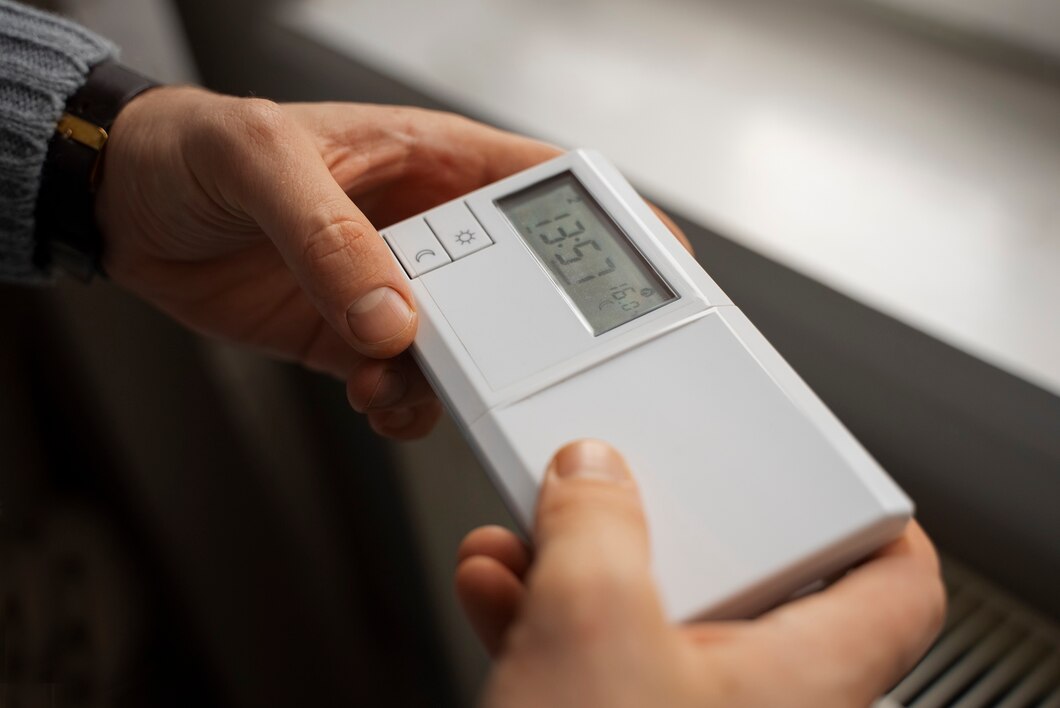The Warm Embrace of Heating System Types
When it comes to heating systems, there are several types to consider, each with its own advantages and disadvantages. The choice of a heating system can depend on various factors, including climate, home size, and personal preferences.
Central Heating Systems
Central heating systems are among the most common types found in homes. They work by generating heat in a central location and distributing it throughout the building. The two main types of central heating systems are:
-
Furnaces: These systems use air to distribute heat. A furnace heats air, which is then blown through ducts to deliver warm air to rooms throughout the house. Furnaces can be powered by natural gas, electricity, or oil.
-
Boilers: Unlike furnaces, boilers use water to distribute heat. They heat water and circulate it through pipes to radiators or underfloor heating systems. Boilers can be powered by gas, oil, or electricity.
Heat Pumps
Heat pumps are an energy-efficient alternative to traditional heating systems. They work by transferring heat from the outside air or ground into the home. There are two main types of heat pumps:
-
Air-source heat pumps: These extract heat from the outside air and are suitable for moderate climates.
-
Ground-source heat pumps: Also known as geothermal heat pumps, these extract heat from the ground and are more efficient in colder climates.
Radiant Heating Systems
Radiant heating systems provide heat directly to the floor or panels in the wall or ceiling of a house. These systems are highly efficient and provide consistent warmth. The two main types are:
Space Heaters
Space heaters are portable devices that can heat a single room or small area. They are ideal for supplemental heating and come in various forms, including:
How to Choose the Right Heating System?
Choosing the right heating system involves considering several factors to ensure comfort, efficiency, and cost-effectiveness.
Assessing Your Needs
-
Climate: Consider the climate in your area. Colder climates may require more robust systems like boilers or ground-source heat pumps.
-
Home Size and Layout: Larger homes may benefit from central heating systems, while smaller spaces might be adequately served by space heaters or radiant systems.
-
Energy Source Availability: Check the availability and cost of energy sources like natural gas, electricity, or oil in your area.
Evaluating Efficiency
-
Energy Efficiency Ratings: Look for systems with high energy efficiency ratings, such as the Annual Fuel Utilization Efficiency (AFUE) for furnaces or the Heating Seasonal Performance Factor (HSPF) for heat pumps.
-
Cost of Installation and Operation: Consider both the initial installation cost and the long-term operational costs.
Environmental Impact
Keeping the Heat On: Maintenance of Heating Systems
Regular maintenance of heating systems is crucial to ensure their efficiency and longevity. Here are some maintenance tips for different types of systems:
General Maintenance Tips
-
Regular Inspections: Schedule annual inspections by a professional to check for any issues and ensure the system is running efficiently.
-
Filter Replacement: Replace or clean filters regularly to maintain airflow and efficiency.
Specific System Maintenance
-
Furnaces: Check and clean the blower and ducts to prevent dust buildup.
-
Boilers: Inspect the pressure and water levels regularly and bleed radiators to remove air pockets.
-
Heat Pumps: Clean the coils and ensure the outdoor unit is free of debris.
Saving Energy and Money: Tips and Government Incentives
Energy efficiency is not only beneficial for the environment but also for your wallet. Here are some tips and incentives to consider:
Energy-Saving Tips
-
Programmable Thermostats: Use programmable thermostats to automatically adjust the temperature when you're not home.
-
Insulation: Ensure your home is well-insulated to prevent heat loss.
-
Seal Leaks: Check for and seal any leaks around windows and doors.
Government Incentives
Many governments offer incentives to encourage energy efficiency, such as:
Comparison of Heating System Types
|
Heating System Type
|
Energy Source
|
Efficiency
|
Ideal Climate
|
Initial Cost
|
Maintenance
|
|
Furnace
|
Gas, Oil, Electric
|
Moderate to High
|
Cold
|
Moderate
|
Moderate
|
|
Boiler
|
Gas, Oil, Electric
|
High
|
Cold
|
High
|
High
|
|
Heat Pump
|
Electric
|
High
|
Moderate to Cold
|
High
|
Moderate
|
|
Radiant Heating
|
Electric, Water
|
High
|
Any
|
High
|
Low
|
|
Space Heater
|
Electric, Gas
|
Low to Moderate
|
Any
|
Low
|
Low
|
Key Considerations for Choosing a Heating System
-
Climate and regional weather patterns
-
Home size and layout
-
Availability and cost of energy sources
-
Initial installation and long-term operational costs
-
Environmental impact and energy efficiency
Frequently Asked Questions
What is the most energy-efficient heating system?
Heat pumps, particularly ground-source heat pumps, are among the most energy-efficient heating systems available.
How often should I service my heating system?
It's recommended to have your heating system serviced annually by a professional to ensure optimal performance.
Can I install a heating system myself?
While some systems like electric space heaters are easy to set up, most heating systems require professional installation to ensure safety and efficiency.
Are there government incentives for upgrading my heating system?
Yes, many governments offer tax credits and rebates for installing energy-efficient heating systems.
What factors should I consider when choosing a heating system?
Consider factors such as climate, home size, energy source availability, cost, and environmental impact.
References
- https://kandkheatingandcooling.com/2024/11/26/a-comprehensive-guide-to-heating-systems-for-residences-choosing-the-best-fit-for-your-home/
- https://www.integrityairconditioning.com/blog/2024/october/understanding-different-heating-systems-which-on/
- https://ironrangeplumbing.com/heating-system-upgrades-for-maximum-home-comfort/

